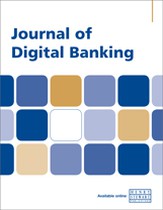Explainable AI in banking
Abstract
Artificial intelligence (AI) is becoming more commonplace in the financial sector. Consequently, various legislators and supervisory authorities, including the European Commission and the European Banking Authority, are considering the development of AI-specific policies and/or regulations. Explainability seems to be at the heart of the current debate on responsible AI. When financial firms start to deploy advanced data analytics, such as deep neural networks, in their business processes, the need we feel to understand what is going on ‘under the hood’, naturally, becomes stronger. After all, while techniques such as deep learning are able to achieve extremely high levels of accuracy, they are also at the root of the ‘black box’ problem. While it is easy to agree on the importance of explainable AI, agreement on what explainability entails can be a bit more challenging. And even if we can agree on a definition of explainability, agreement on the right trade-off between explainability and performance is a different matter entirely. The challenge we face, both as regulators and as financial firms, is to understand the risks we are dealing with and to conscientiously assess what level (and what kind) of explainability is warranted in different situations. While this is certainly no easy task, it is part and parcel of what constitutes responsible AI in the financial sector. This paper concludes that trust is crucial when it comes to AI in banking. Complex AI technologies are new, and it will take time for banks supervisors, as well as wider society, to grow comfortable with their application. Banks must ensure this technology is deployed conscientiously across the banking system, which may require certain changes to the regulatory framework.
The full article is available to subscribers to the journal.
Author's Biography
Joost Van Der Burgt is a Senior Policy Advisor on Artificial Intelligence and Fintech at De Nederlandsche Bank (DNB), the prudential regulator of The Netherlands. Before he joined DNB in August 2015, Joost worked in the Strategy and Risk Analysis department at the Dutch Financial Markets Authority (AFM) for four years, where he also focused on FinTech and the implications of technological innovation for the financial sector. Joost earned a BSc in Business Studies from Fontys University Eindhoven, a BA in Philosophy from Tilburg University, an MA in Political Philosophy from the University of Amsterdam and an MSc in Risk Management from VU University School of Business and Economics and is currently pursuing a BSc in Artificial Intelligence at VU University Amsterdam.
